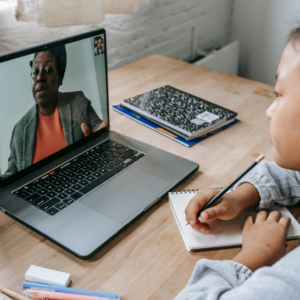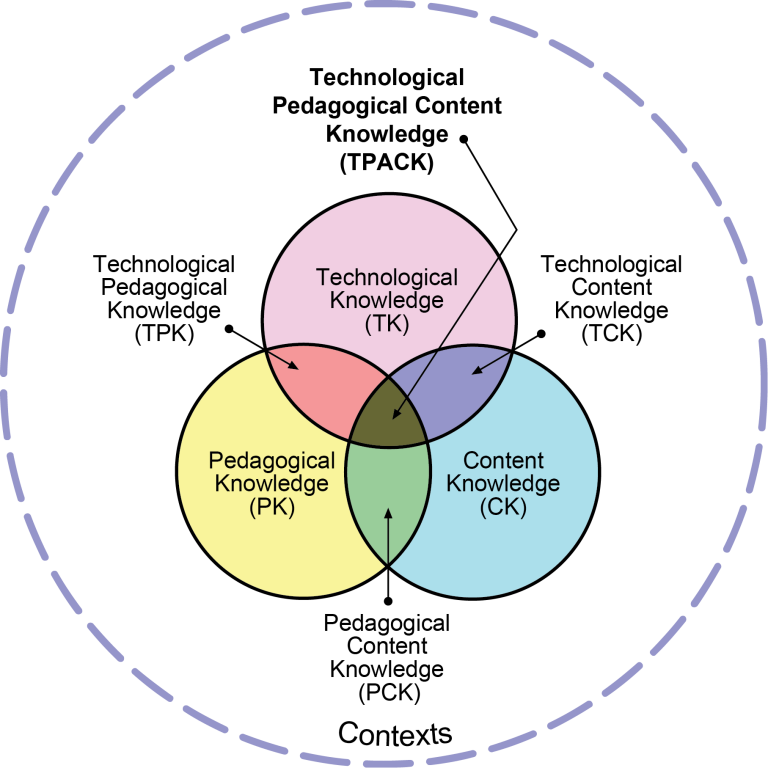Educational Technology: Digital Learning and Teaching in the New Era
By Jessie Tobin
Over the past two years, school professionals have been forced to navigate multiple disruptions imposed by the COVID-19 pandemic. While the challenges posed by the pandemic uniquely impacted each individual, all school personnel were tasked with embracing various and often uncharted forms of educational technology (EdTech). In the digital age, the practical uses of EdTech in both K-12 and higher education have been a hot-button topic among practitioners, and this was true even prior to 2020. Since the pandemic has highlighted inequities in the education system, discussions around how to make better use of EdTech for the most vulnerable and marginalized youth in particular are once again at the forefront of professional discussions.
While K-12 school systems maneuver the best and most equitable ways to apply technology in the coming year, there are key takeaways from the previous year that school leaders and policymakers should consider. This blog highlights ways in which professional development can be improved to encourage more effective use of EdTech and provides insight from remote instruction which many educators plan to bring back into the classroom as COVID variants continue to threaten plans for “school as usual”.
Digital Literacy and Instruction
 In a previous blog NYKids Research and Development Director, Kristen C. Wilcox, described one challenge to implementing EdTech effectively: differing levels of technological literacy among instructors. Indeed, many educators may have experienced greater challenges in teaching remotely than others. If school leaders plan to expand digital instruction offerings moving forward, developing technological literacy skills should be incorporated into professional development in systematic ways.
In a previous blog NYKids Research and Development Director, Kristen C. Wilcox, described one challenge to implementing EdTech effectively: differing levels of technological literacy among instructors. Indeed, many educators may have experienced greater challenges in teaching remotely than others. If school leaders plan to expand digital instruction offerings moving forward, developing technological literacy skills should be incorporated into professional development in systematic ways.
One framework for developing technological literacy is known as Technological Pedagogical Content Knowledge (TPACK). TPACK is a research-based framework meant to address the obstacles, such as access, time, general knowledge, and cost, that many educators face in incorporating EdTech into the curriculum. This framework places emphasis on the relationships between content and how it is actually taught using technologies.
Defining Components of TPACK
- Technological Knowledge: understanding how the technology works
- Pedagogical Knowledge: understanding the how of teaching and learning
- Content Knowledge: understanding the subject matter
TPACK highlights the intersections of all three components and is meant to adapt to specific school environments and educators.
Innovations in Technology Use

As NYKids’ pandemic response study bears out, while virtual teaching has exacerbated educational disparities for the most vulnerable students and those living in more socially isolated and economically-challenged communities, many educators have discovered instructional innovations that they hope will positively impact students when they resume in-person learning.
Additionally, some preliminary findings suggest that a majority of educators will likely be more well-versed in applying educational technology.
One positive takeaway from remote learning during the pandemic is that educators have new ideas for utilizing classroom time in order to promote social emotional learning and stronger relationships among peers. For example, teachers have reconstructed lessons that incorporate virtual “break out rooms” to provide more engaging opportunities for discussion and student interaction.
Along with incorporating more opportunities for peer group interactions, educators have learned to better engage more students by making short informational videos. During the pandemic, many teachers utilized online platforms such as Tik Tok to create mini lesson plans that would reach young people at home. These user-friendly innovations have the power to connect diverse groups of students and their continued use will be beneficial in the coming years.
While challenges abound in closing learning gaps from the 2020-21 school year, there are emerging opportunities for educators to hone new skills in the use of technology.
For upcoming sessions from the University at Albany’s faculty and professional colleagues, stay tuned to the School of Education webpage and follow RemoteED for professional development opportunities.
Thank you for your interest in our work and as always, we encourage you to reach out with any comments or questions, or to request direct support for planning for reopening in the fall at nykids@albany.edu.
